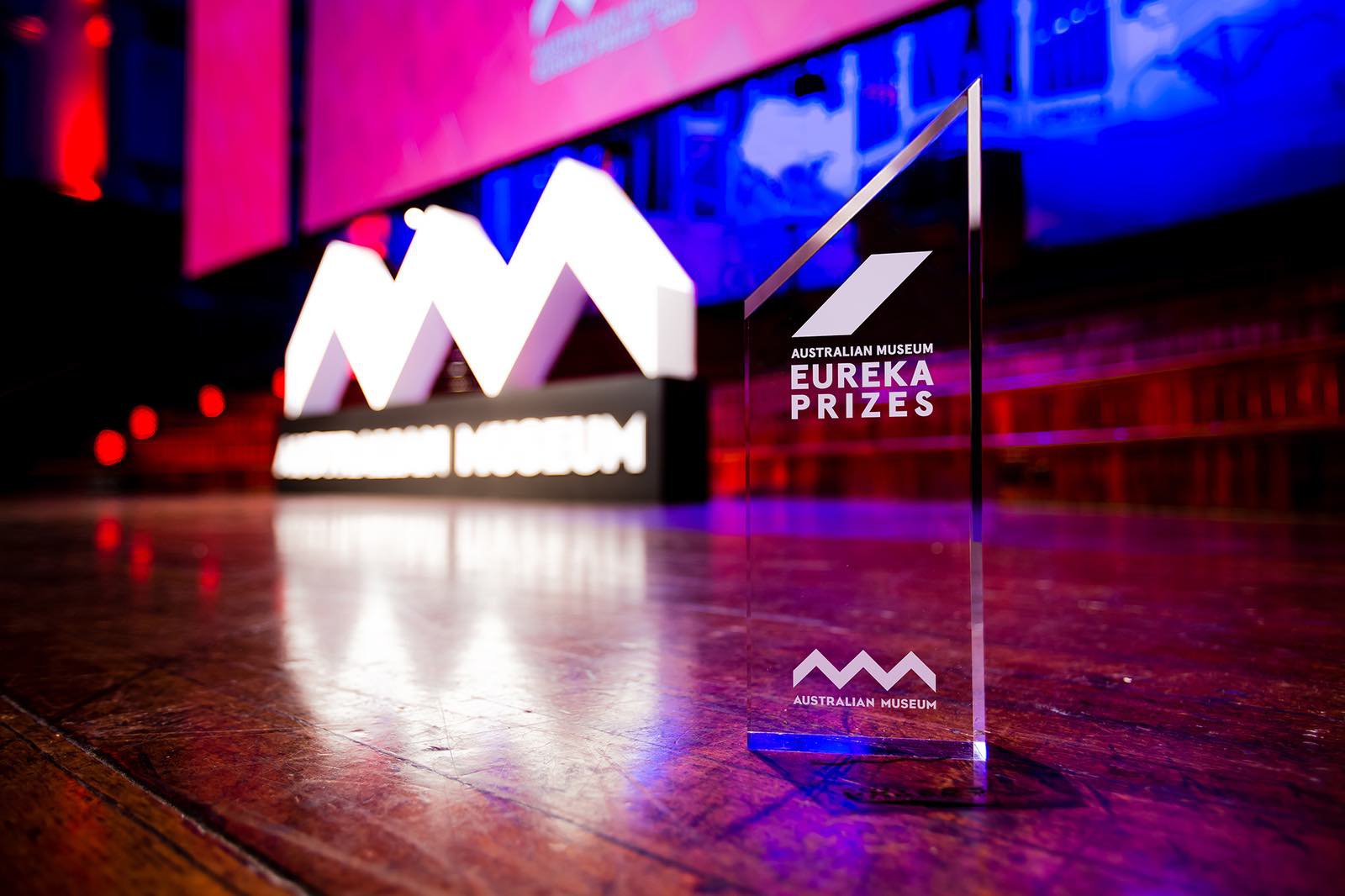2020 Australian Museum Eureka Prizes finalists
51 entries were shortlisted for 17 Australian Museum Eureka Prizes.
On this page...
The Australian Museum (AM) has announced the 51 finalists selected for Australia’s leading science awards, the 2020 Australian Museum Eureka Prizes.
Finalists from almost every state and territory across Australia are in the running for 17 AM Eureka Prizes across four categories: Research and Innovation, Leadership, Science Engagement and School Science.
The AM Eureka Prizes are the nation’s premier science awards, celebrating achievement across a broad spectrum of science, from environmental to innovative technologies, citizen science, leadership and mentoring.
Learn about the 2020 AM Eureka Prizes finalists.
Research & Innovation
NSW Environment, Energy and Science (DPIE) Eureka Prize for Applied Environmental Research
National Environmental Science Program
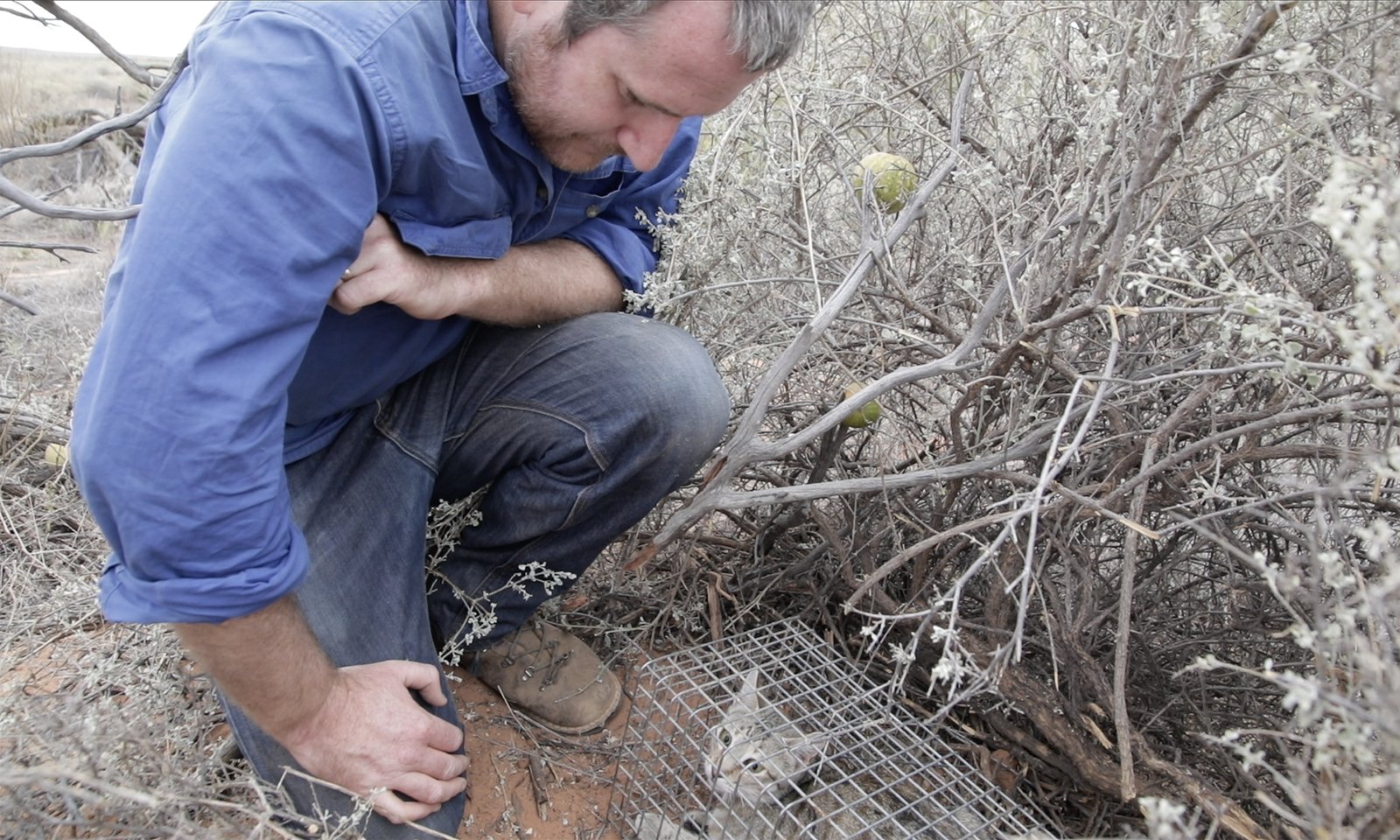
© Nicolas Rakotopare
The impact of feral cats on Australia’s wildlife is severe, however a lack of robust evidence has made their effective management a long-standing challenge. This collaborative team of scientists and land managers has undertaken national-scale research on the ecology of cats, tested management options and influenced biodiversity conservation policy.
The Nature Conservancy; James Cook University; University of Adelaide; and University of Tasmania

© Simon Branigan TNC
Shellfish reefs, once common across the temperate bays and estuaries of southern Australia, have been overexploited to near extinction. This research has documented the decline and provided the knowledge required to successfully commence restoring them and their vital ecosystem services, such as cleaner water, more fish and protected shorelines.
UNSW; Arid Recovery; University of California; and Bush Heritage Australia

© Katherine Tuft
One of the most significant drivers of native mammal extinction and decline in Australia is predation by introduced cats and foxes. By exposing populations of threatened burrowing bettongs and greater bilbies to low densities of novel predators over extended time periods, the Tackling Prey Naivety Team has improved their anti-predator traits.
University of Technology Sydney Eureka Prize for Excellence in Data Science
Monash University

© Monash University
Professor Dinh Phung’s pioneering research has led to the development of algorithms that can uncover infinite hidden patterns from big data. He has revealed how next-generation theory and tools can harness big data for the coming artificial intelligence revolution and advance fundamental science, delivering considerable social and economic impacts.
University of Sydney

© University of Sydney
Deep learning has been shown to reduce human bias, however practical challenges — such as accidents caused by driverless cars — have lowered society’s trust in artificial intelligence. Professor Dacheng Tao has advanced deep learning theory and technologies, enabling the design of innovative algorithms for tasks that include object detection and image enhancement.
UNSW Eureka Prize for Excellence in Interdisciplinary Scientific Research
Garvan Institute of Medical Research and University of Sydney

© Chris Bennett, Evolving Picture
Skillfully bringing together a team of paleo-geologists, archaeologists, anthropologists, geneticists and climate change researchers, this landmark study led by Professor Vanessa Hayes pinpoints the homeland of modern humans in southern Africa. The findings provide a window into the first 100,000 years of modern human history and suggest how climate change may have driven the original migrations.
University of Queensland

© Nitika Davis
Some of the most significant threats to coastal fisheries come from logging and farming, yet they are typically ignored in fisheries management. The Ridge to Reef Fisheries team has developed the first scientific theory to integrate the processes that link changes in land use to coastal ecosystems, fisheries and the human populations dependent on these marine resources.
James Cook University; University of Tasmania; Macquarie University; University of Technology Sydney; Australia Institute of Marine Science; Western Australia Department of Biodiversity, Conservation, and Attractions; and The Nature Conservancy

© Dean Miller
Coral reefs that are thriving despite human and environmental pressures can provide novel insights into confronting complex problems. The Social-Ecological Research Frontiers team assembled the largest dataset of its type on conditions in over 6,000 reefs across 46 countries, allowing them to locate and learn from these coral reef 'bright spots’.
Australian Infectious Diseases Research Centre Eureka Prize for Infectious Diseases Research
Wesfarmers Centre of Vaccines and Infectious Diseases, Telethon Kids Institute; University of Western Australia; Western Australian Department of Health; National Centre for Immunisation Research and Surveillance; AusVaxSafety Consortium; The Paediatric Active Enhanced Disease Surveillance Network; and InFLUenza Complications Alert Network

© Immunisation Foundation of Australia
The Australian Paediatric Influenza Immunisation Research Group built upon a decade of research and scientific evidence to successfully demonstrate the flu vaccine’s safety and efficacy to policymakers. In 2020, their efforts resulted in universal influenza vaccination for young children being introduced on the National Immunisation Program for the first time in Australia’s history.
Kirby Institute

© Richard Freeman/ UNSW
People who inject drugs are a key population affected by hepatitis C, but often excluded from therapy trials due to perceived poor compliance. Professor Gregory Dore has led the first international trials to include a range of study populations from this marginalised group. His research informs clinical practices and improves these groups' access to hepatitis C therapy globally.
Peter Doherty Institute for Infection and Immunity

© Peter Doherty Institute for Infection and Immunity
Group A Streptococcus has severe and ongoing public health impacts, predominantly in remote regions or settings of poverty. Using cutting-edge sequencing technology to identify the evolutionary dynamics of this bacterial pathogen, Team StrepA has provided a global framework for understanding infection management and advancing vaccine design.
ANSTO Eureka Prize for Innovative Use of Technology
University of Queensland; UNSW; and Monash University

© Australian Museum
Visualisation of scientific data plays a crucial role in scientific discovery and communicating findings to both expert and general audiences. BioNanoVR has developed a new way of interacting with complex biological data, which allows miniaturised viewers to explore a virtual 3D model of a cancer cell or watch nanoparticles target tumours inside the body.
Defence Science and Technology Group

© Defence Science Technology Group
Adjunct Professor Dennis Delic is designing, and leading the commercialisation of, miniature smart sensors that can identify single photons of light. His patented technology can form rapid and accurate 3D images of objects that are hidden underwater, concealed on land or travelling through the air, which will lead to substantial gains for Australia’s defence capabilities.
Monash University and ANSTO

© Monash University
The Monash Milk Team has developed novel synchrotron-based methods for studying the interaction of milk and milk-like systems, with drugs. Their work has potential applications across a wide range of drug classes and diseases, and has already advanced the development of safe and effective drug formulations for children, including the first single dose cure for malaria.
Macquarie University Eureka Prize for Outstanding Early Career Researcher
Queensland University of Technology

© Australian Museum
Dr Nathalie Bock proposes to address the limitations of current preclinical models through the development of innovative 3D bioengineered human platforms for cancer research. Using a multidisciplinary mindset, she has merged tissue engineering, materials science and cancer biology to better mimic the human tissue microenvironment, enabling comprehensive study of bone metastasis — a currently incurable condition.
University of Sydney

© University of Sydney
Dr Lining (Arnold) Ju’s research has advanced our understanding of how ‘force-sensing’ proteins in the cardiovascular system trigger blood clotting. Inspired by mechanobiology, he has developed novel bioengineering approaches that efficiently prevent disease-forming clots, a breakthrough that will have life-saving implications for diabetics who are resistant to conventional anti-clotting drugs.
University of Technology Sydney

© University of Technology Sydney
Dr Qilin Wang has developed a technology that would transform energy-consuming, high-emission sewage treatment plants into energy-producing, low-emission plants. This transformation is achieved by utilising a by-product of the sewerage treatment process, creating a closed-loop system. His technology, which is being commercialised globally, could provide major benefits for water utilities and communities worldwide.
Defence Science and Technology Eureka Prize for Outstanding Science in Safeguarding Australia
University of Sydney (Professor Benjamin Eggleton, Dr Eric Mägi, Dr Moritz Merklein, Dr Alvaro Casas Bedoya and Dr Yang Liu) and Australian National University (Associate Professor Stephen Madden)

© Australian Museum
By harnessing the delicate interaction between light and sound, Professor Benjamin Eggleton and his team have produced a microchip that provides a unique advantage for defence platforms. With prototypes already developed in Australia and internationally, this compact technology heralds a new era in microwave signal processing and represents real gains in performance, efficiency and cost.
UNSW

© UNSW
UNSW Biodefence has combined public health and military expertise to develop a simulated method for pandemic response, which facilitates collaboration across a wide range of sectors. Underpinned by mathematical modelling and published research, this work provides a concrete, actionable blueprint relevant to any respiratory pandemic — including COVID-19.
Curtin University (Professor Ba-Ngu Vo and Professor Ba Tuong Vo) and Solinnov Pty Ltd (Dr Michael Beard)
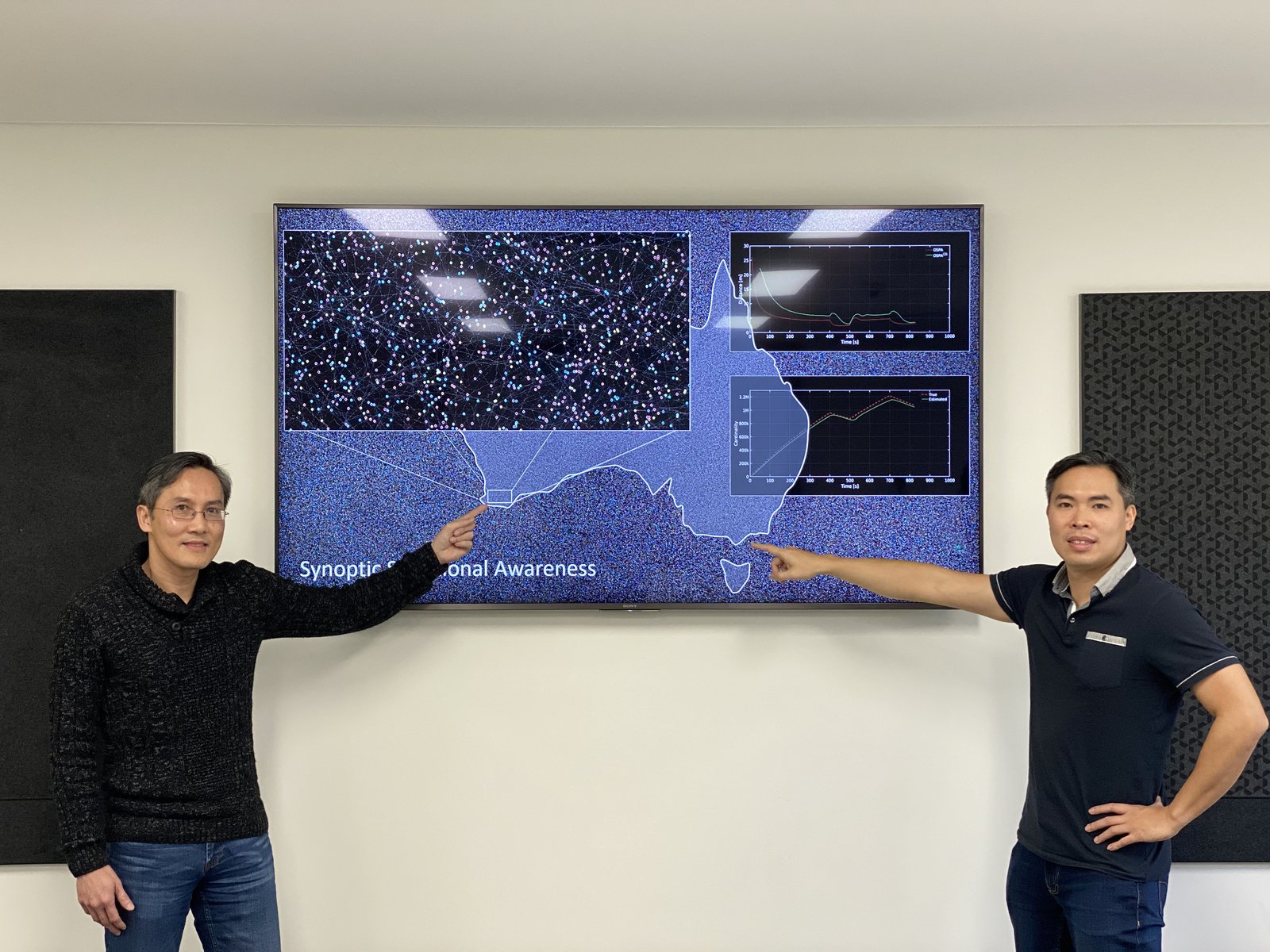
© Australian Museum
Professor Ba-Ngu Vo and his team have developed an innovative approach to situational awareness that has the potential to process large volumes of data from multiple environmental elements and events. Facilitating comprehensive intelligence, surveillance and reconnaissance over vast areas, this capability is well suited to Australia’s need to defend a large region with a relatively small force.
UNSW Eureka Prize for Scientific Research
University of Queensland; Monash University; and Swinburne University of Technology

© University of Queensland
Turbulence is a ubiquitous phenomenon that causes giant vortices to form, influencing global weather, flight and even galaxies. The Australian Quantum Vortex Team has developed pioneering laser technologies to observe the microscopic origins of turbulence for the first time. Their results verify 70-year-old predictions that these vortices emerge in quantum fluids and have important implications for the design of future quantum technologies.
Australian National University and Curtin University

© Australian Museum
Developing efficient ways to catalyse reactions has been an important quest for scientific research. The Coote-Ciampi-Darwish team has shown that electric fields can be used to manipulate chemical reactions, a breakthrough that may enable greener and safer methods for fabricating materials ranging from drugs to plastics.
Monash University

© Monash University
Despite the existence of several established treatments for type 2 diabetes, a drug that halts or reverses disease progression is not yet available. Through his metabolic disease research, Professor Mark Febbraio has discovered that a compound called IC7Fc could improve glucose metabolism, progressing new drug therapies for people living with diabetes.
Leadership
3M Eureka Prize for Emerging Leader in Science
Wesfarmers Centre of Vaccines and Infectious Diseases, Telethon Kids Institute

© Telethon Kids Institute
Regarded as one of the brightest clinician-scientists of her generation, Associate Professor Asha Bowen is a world-class early career researcher and rising leader in infectious disease research. Her passion for ending skin disease has driven breakthrough knowledge and policy change that is reducing the burden of skin infections for Aboriginal children living in remote communities.
RMIT University
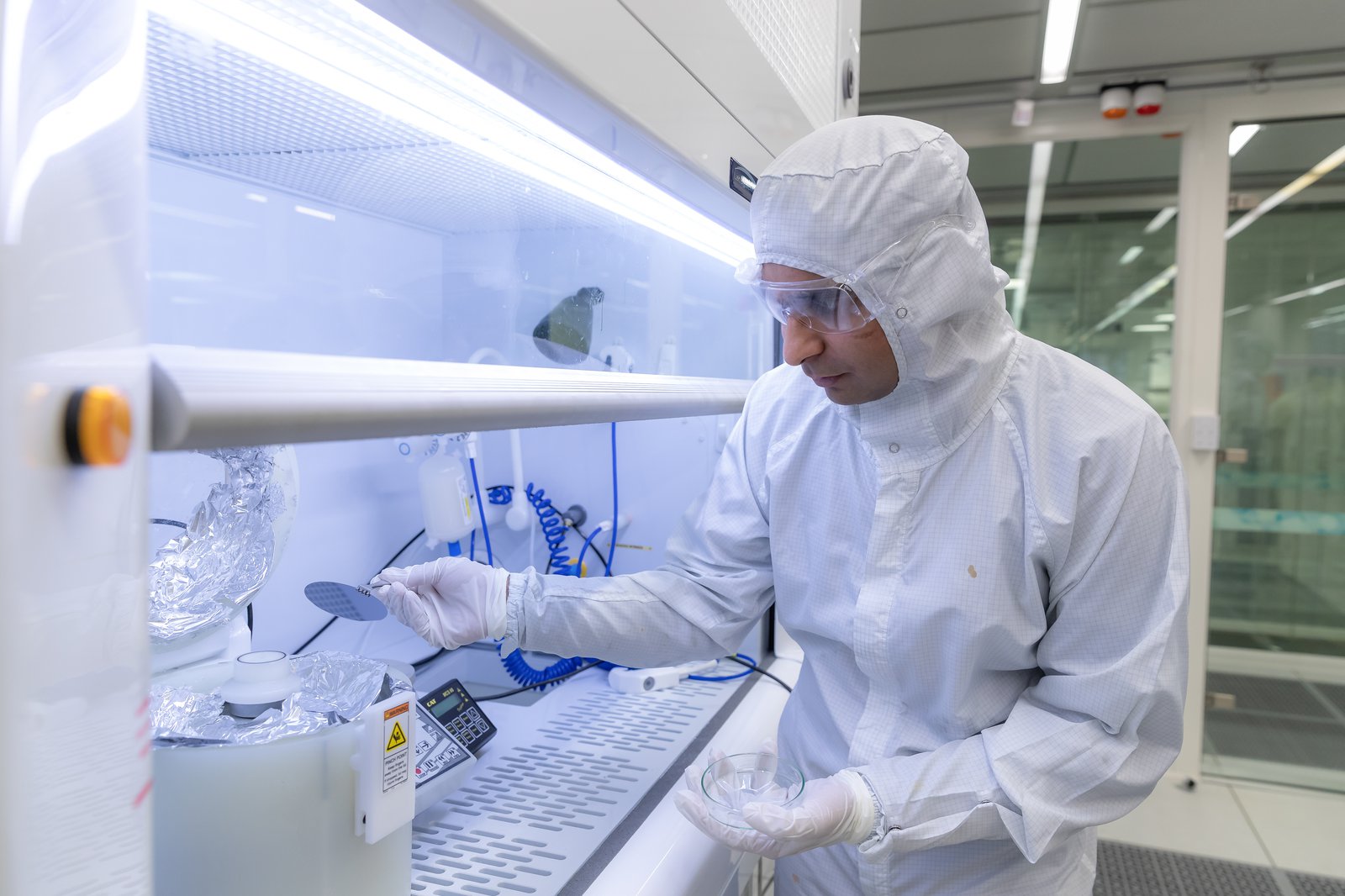
© RMIT University
Associate Professor Sumeet Walia is a cross-disciplinary researcher whose innovations include futuristic electronics, sensing technologies and devices that mimic the functionality of the human brain. His work Is having a rounded impact at a national level, as he actively promotes diversity and inclusion in STEM, advocates for evidence-based policies and is a leader in accessible science communication.
University of Technology Sydney

© University of Technology Sydney
Dr Jiajia Zhou has emerged as an international leader in the application of single particle spectroscopy. She has developed a global network of collaborators across a range of disciplines, opening up new research directions and accelerating developments in areas that include visual display technology, security inks and personalised medicine.
CSIRO Eureka Prize for Leadership in Innovation and Science
UNSW and Children’s Cancer Institute

© UNSW
Internationally renowned as an authority in cancer biology research and therapeutics, Professor Maria Kavallaris is a champion for childhood cancer. An innovator, advocate and powerful role model for young women in STEM, she has created an enduring legacy of excellence in both research and shaping the next generation of cancer research leaders.
University of Sydney

© University of Sydney
For nearly two decades, Professor Robert F. Park has led world-class efforts to develop cereal varieties with inbuilt genetic disease resistance. He is one of the few plant pathologists who has successfully translated their biological discoveries to the real world, his research having a sustained global impact on the economic viability of cereal production and food security.
University of Sydney

© University of Sydney
As inaugural director of the University of Sydney Mathematical Research Institute, Professor Geordie Williamson is leading research collaborations between local and international mathematicians. He has made fundamental contributions to Australia’s research capacity in pure mathematics and his unique leadership vision is transforming the discipline and helping shape the mathematical tools of the future.
University of Technology Sydney Eureka Prize for Outstanding Mentor of Young Researchers
Woolcock Institute of Medical Research and University of Sydney

© University of Sydney/Stefanie Zingsheim
Professor Carol Armour has devoted the past 20 years of her academic career to enhancing Australia’s research capacity. Harnessing her passion for mentoring and career development, she has created transformative programs and unique opportunities that are advancing the careers of Australia’s next generation of researchers.
University of Technology Sydney

© University of Technology Sydney
Professor Karu Esselle has a passion for nurturing the careers of young researchers, empowering his mentees to think freely and critically while helping them integrate into the wider scientific community. Driven by a desire to develop confident, skilled and workforce-ready graduates, he has implemented a range of programs and policies that facilitate broader researcher development.
Science Engagement
Department of Industry, Science, Energy and Resources Eureka Prize for Innovation in Citizen Science
International Centre for Radio Astronomy Research

© International Centre for Radio Astronomy Research
AstroQuest is an online citizen science initiative that helps astronomers better understand how distant galaxies grow and evolve. Volunteers are motivated by game features, such as quests and rewards, to check images that have been processed by sophisticated computer algorithms. Their feedback helps research teams study galaxies and improve machine learning.
University of Sydney and Taronga Conservation Society Australia

© University of Sydney
Once a rare species due to overhunting, the Australian Brush-turkey is now commonly found in urban areas on the country’s east coast. Team Brush-turkey has developed a project that engages the community to report sightings while learning about this unique species. The information helps scientists better understand their evolving distribution and the behaviours that enable recolonisation.
University of Melbourne; Deakin University; Department of Environment, Land, Water and Planning; and Propeller Aerobotics

© David Kennedy
A world-first initiative, the Victorian Coastal Monitoring Program is empowering local communities to predict how beaches respond to storms and rising sea levels. Using lightweight drones, citizen scientists produce 3D models that precisely measure shoreline change. The open-source data informs coastal management and policy decisions.
Finkel Foundation Eureka Prize for Long-Form Science Journalism
Monash University

© Adele Biegler
A new device to create embryo-like structures is shedding light on the mystery of early human development and the blight of miscarriage and birth defects. But could these embryoids one day supply transplant organs or even make a baby? In Biology’s Black Box, Dr Paul Biegler asks bioengineers and policymakers how far we can take the ‘embryo in a dish’.
Published in Cosmos, 5 March 2020
The Monthly

© Ceridwen Dovey
In Mining the Moon, Ceridwen Dovey questions the headlong rush among private industry to commercialise space activities and normalise the idea of mining the moon. She provides a detailed analysis of Australia's proud, yet little known, history as a leader in space diplomacy and sustainability, and suggests it could continue to advocate for internationally binding protections for the moon.
Published in The Monthly, 1 July 2019
Celestino Eureka Prize for Promoting Understanding of Science
Macquarie University

© Macquarie University
The number of Australians, especially young women, studying higher mathematics is declining and Dr Sophie Calabretto is committed to changing this. From community outreach to appearing on national media, she seeks to illustrate the pervasiveness of maths in everyday life. Serial killers, neuron firing, mixing martinis and radioactive decay — maths truly is everywhere.
University of Sydney

© University of Sydney
Associate Professor Alice Motion is a chemistry researcher, educator and public communicator of science who is committed to engaging new and underrepresented audiences. An important voice for the popularisation of science, she has reached millions of Australians through a range of methods that include original podcasts, musical festivals, television appearances and social media.
Monash University

© Australian Museum
Known for her ability to tackle stigmatised and misunderstood issues, particularly in mental health, Dr Gemma Sharp is a skilled science communicator who extends her influence across multiple media platforms. Her engaging and relatable approach has led to greater mental health awareness and treatment seeking in the community.
Australian Museum Eureka Prize for Science Journalism
CNET

© CNET
From the earliest days of the coronavirus pandemic, Dr Jackson Ryan has explored the science, technology and people at the forefront of the COVID-19 response. His reports have been an important source of advice, debunking misinformation and detailing the innovative ways science is helping us through the worst health crisis in a century.
Published by CNET on 23 January, 5 February, 3 March, 2 April and 11 May 2020
Australian Broadcasting Corporation

© Australian Broadcasting Corporation
Australian women have a deep and rich history in computing stretching back to the 1800s, when some worked as ‘computers’ themselves, calculating mathematical problems. They have played important roles in scientific discoveries but were often omitted from history. Their pioneering contributions — and their obstacles — are revealed in this timely multimedia series, The Hidden Women of Australian Computing.
Published by ABC on 10, 17 and 28 November 2019
Australian Broadcasting Corporation

© Australian Broadcasting Corporation
Coronacast is a podcast that breaks down the latest news and research to help listeners understand how the world is living through a pandemic. Hosted by physician Dr Norman Swan and health reporter Tegan Taylor, it gives evidence-based answers to audience questions and has emerged to become many Australians’ primary source of trusted information about the coronavirus pandemic.
Episodes submitted for this prize were published by ABC on 16, 26 and 27 March; and 8 and 17 April 2020
Department of Industry, Science, Energy and Resources Eureka Prize for STEM Inclusion

© CSIRO
CSIRO’s Indigenous STEM Education Project is an evidence-based, national initiative that improves Aboriginal and Torres Strait Islander student aspiration, achievement and participation in STEM. The project has reached beyond the walls of classrooms to increase the skills, capability and ambition of whole communities. For some, the program has been life changing
CSIRO; University of Western Australia; Charles Darwin University; Kakadu National Park Board and Traditional Owners; Northern Land Council; Microsoft and National Environmental Science Program

© Kakadu NESP Team
Indigenous custodians, together with scientists, have developed new ways to apply science and Indigenous knowledge to managing Kakadu National Park. Traditional Owners and Rangers are now using technologies that include artificial intelligence, drones, time-lapse cameras and participatory videos to adaptively co-manage important landscapes within this World Heritage Area.
University of Sydney

© The University of Sydney
Indigenous Australians are significantly underrepresented in all areas of STEM. Corey Tutt’s DeadlyScience initiative for remote and regional schools across Australia is changing this by connecting young Indigenous people with mentors, providing culturally appropriate science resources and delivering virtual STEM lessons. His activities are gaining widespread support among these communities.
School Science
University of Sydney Sleek Geeks Science Eureka Prize - Primary
Oak Flats Primary School, NSW

© Australian Museum
Super Cooled Science examines how water turns into ice and explains ‘supercooling’, the process of chilling a liquid below its freezing point, without it becoming solid. Using claymation and dance, Scarlett and Scarlett illustrate the role that energy plays in this transformation and describe one of the ways supercooled water is being used by scientists.
Maribyrnong Primary School, ACT

© Nick Potter
Have you ever wondered why some bugs can walk on water? In Stretching the Tension, Clara explores the role of surface tension, revealing how water acts like an elastic membrane that stretches when forces are applied to it — just like a trampoline.
Norwood Primary School, Tas

© Kate Swift
The Leidenfrost Effect investigates what occurs when a liquid heated past its boiling point doesn’t evaporate, but instead glides across the surface it’s resting on. Levi demonstrates this effect using water droplets in a hot pan and shares a series of diagrams to explain what takes place at a molecular level.
University of Sydney Sleek Geeks Science Eureka Prize - Secondary
St Leonard's College, Vic

© Australian Museum
Synovial Fluid and Subatomic Particles is an investigation into how quantum effects in water help our joints move. Taking to his local sports field, Aneirin explains the important role of synovial fluid in the human body and reveals how recent scientific discoveries have transformed scientists’ understanding of how this fluid behaves.
Balwyn High School, Vic

© Australian Museum
Look at your windowpane on a rainy day and you’ll almost certainly see tiny water droplets move closer together until they merge. In The Secret Life of Droplets, Himalaya uses a lively combination of song and animation to explain the science behind this phenomenon.
St Matthews Catholic School, NSW
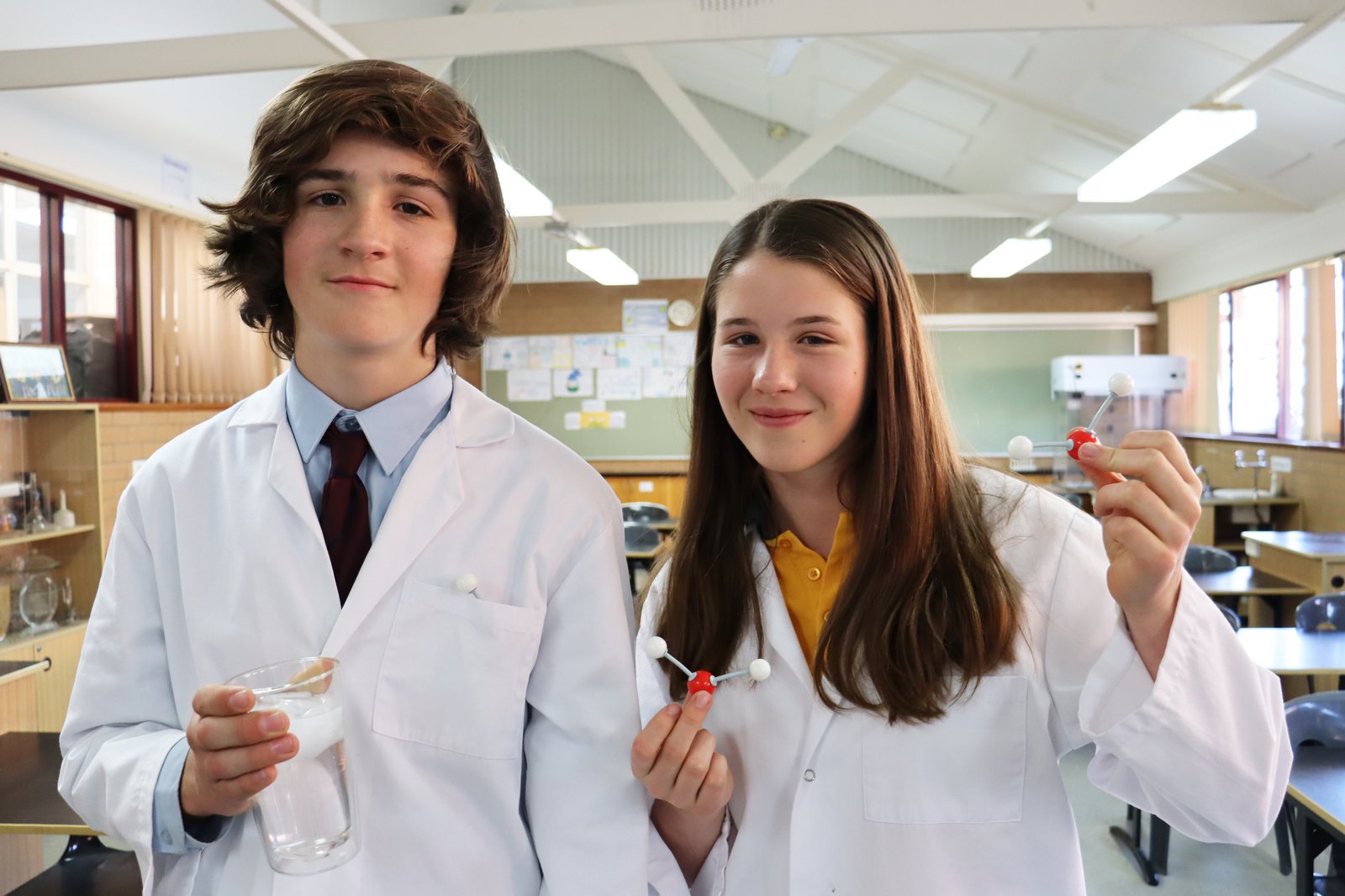
© Australian Museum
In Rebellious Water, Jessica and Zacharie examine why water seemingly defies the rules of chemistry. They use animation to illustrate the forces at play between water molecules, known as hydrogen bonds, and describe how this impacts the physical properties of water in its different states.
University of Sydney Sleek Geeks Science - Highly Commended
Sleek Geeks Science Highly Commended - Primary School
- Awesome Aquaponics, Romaine B. and Holly L., Presbyterian Ladies' College, NSW
- Off A Duck's Back, Griffin C., St Peters Lutheran College, Qld
- How Water Bends Light, Daniel C. and Alexander D., Strathfield North Public School, NSW
- Evaporation, Joseph D., Ardross Primary School, WA
- Soap vs. Germs, Elena G., St Mary's Catholic Primary School, WA
- Testing Water Density, Felix H., home-schooled, Qld
- Water Wrongs to the Dugongs, Kitty L. and Tyler S., Presbyterian Ladies' College, NSW
- Diving into Convection, Neomi V., Abbotsleigh, NSW
Sleek Geeks Science Highly Commended - Secondary School
- Water for Drinking: Flocculation, Kai C., Lindisfarne Anglican Grammar School, NSW
- Nice to Meat You, Juliette C. and Lucy C., Presbyterian Ladies' College, NSW
- Drinking from The Sun, Jonathan D., Townsville Grammar School, Qld
- Hydrogen Highway - Clean Fuel from Water, Emma D., Warrandyte High School, Vic
- Water Bending, Keano H., Lindisfarne Anglican Grammar School, NSW
- Water’s Polarity, Bhoomini J., Charlotte L. and Anaya M., Brisbane State High School, Qld
- Will Nemo Survive the Increasing Sea Temperatures? Hannah K., Jasmine N., and Eva P., Centenary State High School, Qld
- The Baffling Mpemba Effect, Ava L., Oxley College, NSW
2020 Eureka Prizes Award Ceremony
For the first time in the program’s 30-year history, the Eureka Prize winners will be announced during an interactive broadcast award show on Tuesday 24 November – and you're invited to attend.

